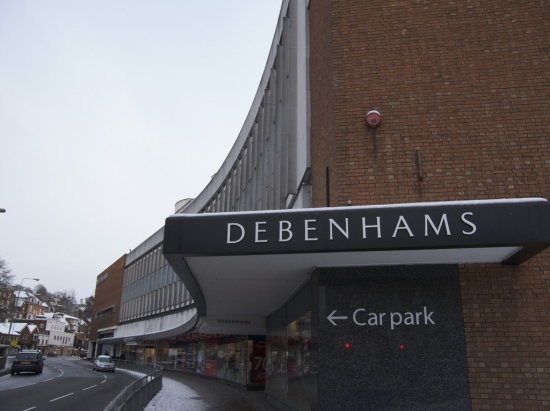While consumer confidence has grown in recent months, and May yielded the most positive sales results seen since records began, many stores are still suffering from the problems caused by the poor weather seen earlier this summer. There are concerns that the annual results of commercial property-based stores will be negatively affected by this seasonal factor, with department store Debenhams posting slowing sales growth this week.

The 200 year old firm has struggled to mimic the success of its biggest rival John Lewis, which posted record results over the Christmas period and has continued to perform superbly in the following months thanks to an increase in consumer interest for big ticket items such as furniture and electronics. According to Debenhams, sales at stores which have been trading for at least 12 months fell flat in the third quarter.
This contradicts the forecasts made by analysts, as they predicted growth of around 2 per cent in the 16 weeks to June 22nd, and also trails John Lewis’ results by quite some way. Britain’s top department store chain managed to post a total sales leap of 7.9 per cent in the 20 weeks to June 15th.
However, Debenhams claimed in a statement that it expects to meet annual forecasts for 2013-2014, which analysts have set at around £153 million. This confidence has largely been attributed to the retailer’s performance in the first half, which saw like for like sales growth of 3.1 per cent.
Debenhams said; “We consider this to be a robust performance in a market which has been impacted by the weak consumer environment as well as poor spring weather which dampened demand for new season ranges.”
While sales remained stubbornly flat in the third quarter, there were actually several elements of strength in Debenhams’ quarterly report. Market share, for example, grew in areas such as clothing, beauty and homeware, and the number of sales made online increased by 40 per cent when compared to the previous year.
The retailer is certainly in a stronger position now than at the start of the year, when poor sales forced the board of directors to issue a profit warning in March. They attributed this to the snowfall in January impacting sales which were not negated by a flurry of promotions and discounts in February.
Debenhams is certainly not an anomaly in the present times, as many fashion retailers have struggled to shift new season stock thanks to the unusually cold spring. Zara owner Inditex, for example, posted its weakest quarterly net growth in four years earlier this month and high street favourite H&M missed its second quarter net sales target entirely.
With the situation remaining unpredictable for bricks and mortar based retailers, it seems that those with a strong digital presence – like John Lewis – will remain at the top of the heap for some time to come.
Do you think quarterly sales performance, at the end of the day, all comes down to which retailers have the best online options?